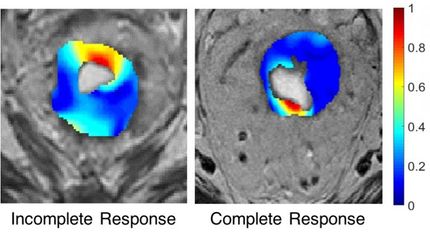New data on Novartis drug Zometa for treatment of breast cancer and multiple myeloma-related bone complications published
Advertisement
Basel, 22 October 2001 – Clinical data published in the September 2001 issue of The Cancer Journal demonstrate that the Novartis drug Zometa (zoledronic acid) reduces the incidence of cancer-related bone complications called skeletal related events (SREs) in patients with multiple myeloma or advanced breast cancer. The data also show that treatment with Zometa delays the time to onset of the first SRE. Additionally, the authors conclude that the fast and convenient 15-minute infusion time of Zometa offers benefit to physicians and patients. The breast cancer data from this study is being presented at the European Cancer Conference in Lisbon, Portugal on 21 October.
Skeletal related events are a serious, painful and sometimes life-threatening complication of bone metastases. They were defined in the study as pathologic fractures, spinal cord compression, surgery to bone, radiation therapy to bone and hypercalcaemia of malignancy. Current therapeutic options for complications of bone metastases include: chemotherapy, hormonal therapy, radiotherapy, analgesics for pain management, surgery and the use of intravenous bisphosphonates.
"The shorter infusion time of Zometa offers patients the important benefit of greater convenience than previous generation therapies," said Lee Rosen, MD, Assistant Professor in the Department of Medicine, Hematology and Oncology at UCLA Medical Center, a primary investigator and study author. "The data, combined with the convenient infusion time suggest Zometa should be the new standard of treatment for bone complications of breast cancer and multiple myeloma."
Study Details This international Phase III, randomized, double-blind, double-dummy trial was designed to compare the efficacy of the 15-minute infusion of Zometa (4 or 8/4 mg) to that of Aredia® (pamidronate disodium, 90 mg) infused over two hours. The study included 1,648 patients with either stage III multiple myeloma (a cancer of the plasma cells), or advanced breast cancer. The final efficacy analyses focused on comparisons of 4 mg Zometa versus pamidronate, as the higher Zometa dose did not provide added efficacy, but was associated with reduced tolerability. The primary efficacy endpoint was the proportion of patients experiencing at least one SRE by the 13th month.
The proportion of study participants who had experienced at least one SRE at month 13 was approximately 44% in the Zometa 4 mg group and 46% in the pamidronate disodium group. In addition, the median time to first SRE, a secondary endpoint, was approximately one year in both treatment groups. The multiple myeloma portion of the data was presented earlier this month in an abstract at the Recent Advances in The Management of Multiple Myeloma meeting, at the German Cancer Research Centre, in Heidelberg, Germany.
























































